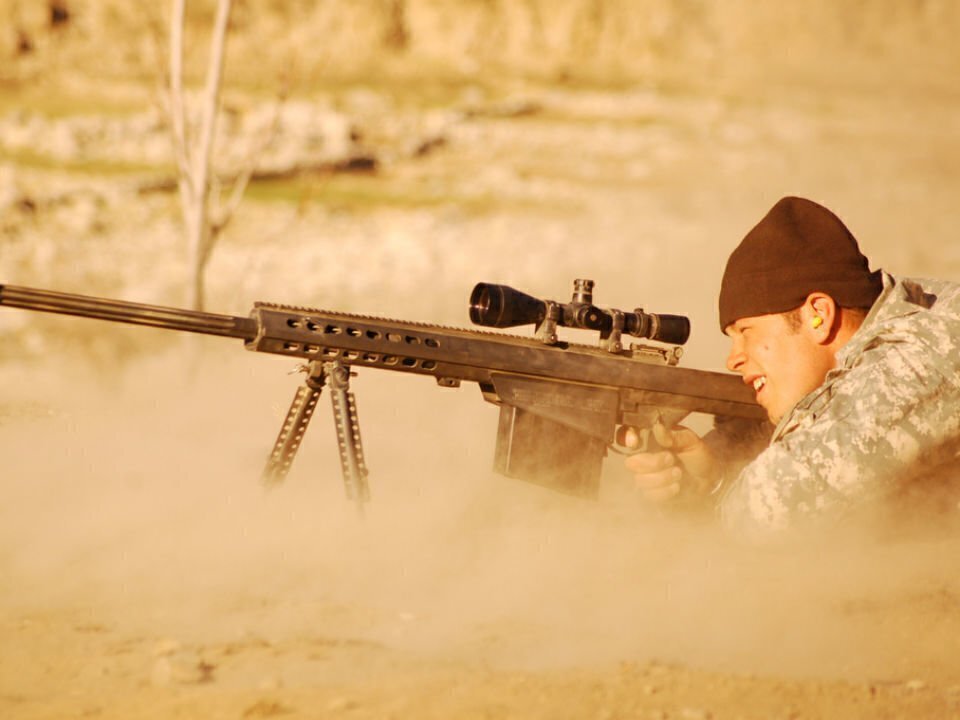 In high-profile cases, a routine question is whether or not a jury can be “impartial” as required by the Sixth Amendment. But what happens if Hollywood takes interest in the story?
In high-profile cases, a routine question is whether or not a jury can be “impartial” as required by the Sixth Amendment. But what happens if Hollywood takes interest in the story?
As discussed in Constitution Daily earlier this month in regards to the Boston Marathon bombing trial of Dzhokar Tsarnaev, impartial jurors are not easy to find when an entire community may have already formed conclusions about the accused.
This question has been raised again in the ongoing trial of Eddie Ray Routh, who confessed to murdering Chris Kyle—the subject of the blockbuster hit American Sniper, which is up for six Academy Awards this Sunday night. How can his jury be impartial under such circumstances?
The impartiality requirement of the Sixth Amendment has two parts. First, the jury must be a representative cross section of the community. This issue arises in cases where neighborhoods have stark demographic contrasts, such as the O.J. Simpson trial. Second, there must be assurance that the jurors chosen are unbiased. This requirement is our focus with regards to the Routh case.
While the impartiality requirement of the Sixth Amendment is stark, the Supreme Court has explained further what this requirement could entail.
In 1961, the Supreme Court held in Irvin v. Dowd that when the local area of the trial has been so saturated with publicity that it is unlikely the defendant can have a disinterested jury, he is entitled to a change of venue. This case centered on six murders committed in the span of a few months in Evansville, Indiana. The murders were extensively covered by the local media, and the police issued press releases stating the defendant had confessed.
In the majority opinion, Justice Tom Clark wrote, “The failure to accord an accused fair hearing violates even the minimal standards of due process.” Further limitations apply to capital cases, as courts are reluctant to stack the deck with scrupled jurors that will vote for the imposition of the death penalty, no matter what.
Much has changed in the world, however, in the half-century since Irvin. While a change of venue could avoid the deep prejudices of 1960s Indiana, the greater scope of media today threatens impartiality more than ever.
In the trial of George Zimmerman, for example, the defense attorney made light of this issue with a knock-knock joke told during his opening statement, drawing attention to how difficult it was to find jurors who didn’t know about his client’s case.
Routh faces a different kind of prejudice than the 24-hour news cycle Zimmerman was combatting. While many may not know his name, they know the story of his victim.
American Sniper shows the sacrifices Chris Kyle and his family made during his military service. Following the huge success of the film, Kyle has been lauded as a hero—the governor of Texas even declared the anniversary of his death “Chris Kyle Day.”
Given the widespread respect for and mourning of this victim, it is hard to imagine how jurors are not biased at some level. Marc Chavez, a prosecutor in another Texas county, said, “What has to happen with jurors is they have to not have a preconceived mind either way. We saw this great movie. We saw the memorial service. How can we set that aside and be fair and impartial?”
Still, the judge in the case rejected a defense request to delay the trial because of publicity, and refused to move the trial out of Erath County.
While Routh has confessed to the murder of both Kyle and a friend of Kyle—removing some issues of determination of guilt—the jury retains a particularly high level of responsibility at the sentencing stage, given that capital punishment is on the table.
So, on Sunday night, while Bradley Cooper awaits the Oscar announcement for “Best Actor,” members of the Routh jury will prepare for trial to resume in the coming week.
Laura Beltz is a pro bono intern at the National Constitution Center. She is also a student at the University of Pennsylvania Law School.







